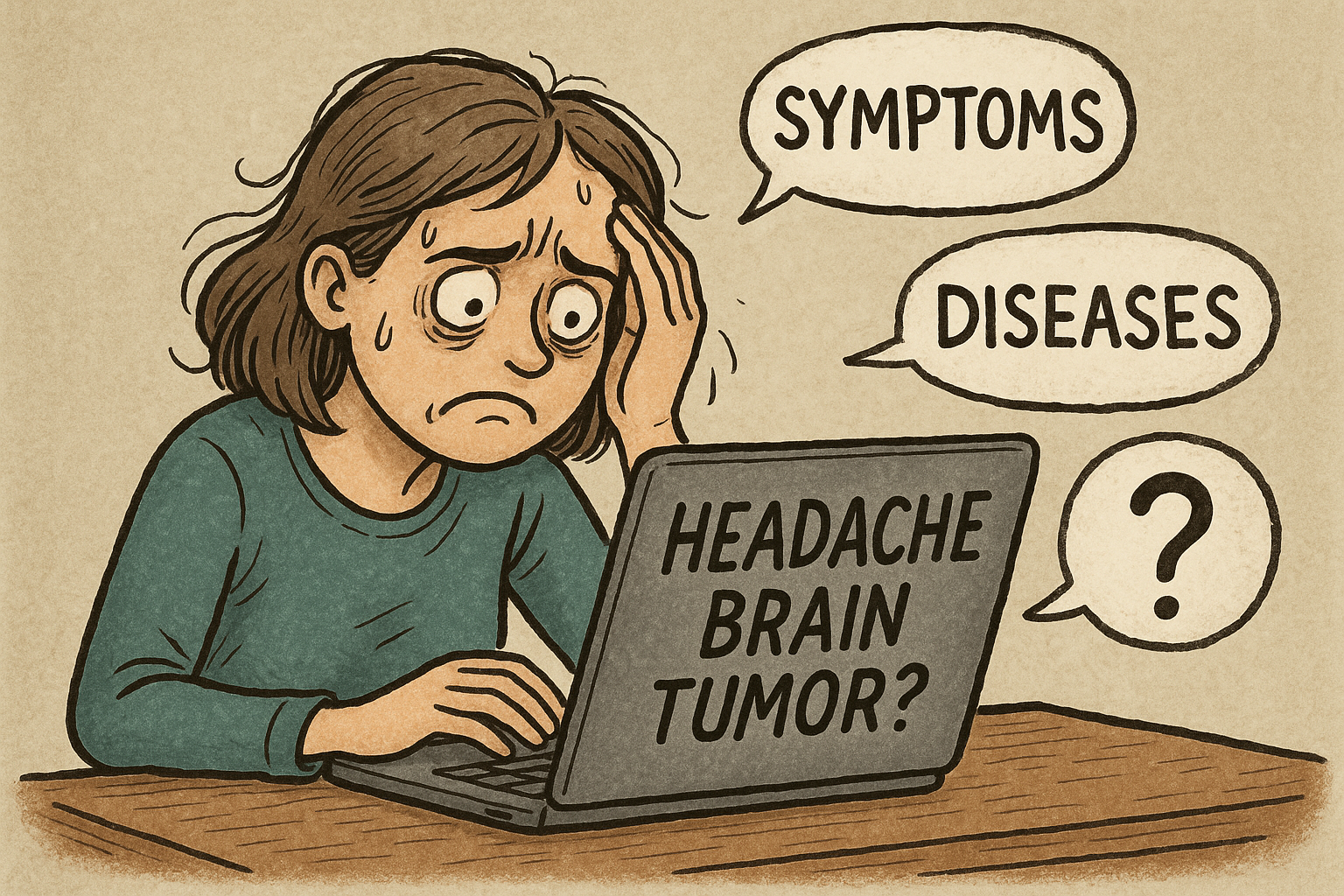What Is Cyberchondria?


In this connected world, knowledge is a double-edged sword—especially when it comes to our health. While the internet provides an unprecedented level of access to medical information, it also breeds a phenomenon known as cyberchondria—a modern-day mental health concern characterized by excessive online searching for medical information that leads to heightened health anxiety.
Sound familiar? That rabbit hole of Googling a mild headache only to convince yourself it’s a brain tumor? Yeah, you’re not alone.
Cyberchondria is the compulsive behavior of searching for health-related information online, which paradoxically amplifies anxiety instead of alleviating it. Unlike informed health research, cyberchondria spirals into obsessive checking, catastrophic conclusions, and overwhelming distress.
This behavior is linked closely to health anxiety, which is the persistent fear of having or developing a serious illness—even in the absence of symptoms or after medical reassurance.
With just a few clicks, anyone can access WebMD, Reddit forums, TikTok medical influencers, or health-related YouTube channels. While some information is credible, much of it isn’t contextualized for personal health history or proper diagnostics.
The issue? Your browser doesn’t provide a diagnosis—it provides infinite possibilities, most of which are worst-case scenarios.
Cyberchondria isn’t just about curiosity; it's obsessive. Here’s what it often looks like:
These behaviors create emotional distress, impact daily functioning, and can even affect relationships and work life.
Anyone can fall prey to cyberchondria, but it’s particularly common in:
Health anxiety and cyberchondria aren't just mentally exhausting—they're physically draining too. Constant stress from perceived illness can cause real symptoms like:
It’s a self-fulfilling cycle—stress leads to physical symptoms, which leads to more Googling, which leads to more stress.
For therapists and mental health agencies, cyberchondria is an emerging issue that deserves proactive intervention.
CBT remains the gold standard. It helps patients:
Clients benefit greatly from learning about the anxiety cycle and how online behavior impacts it. Awareness is the first step toward change.
Teaching structured “digital hygiene”—like limiting searches, setting boundaries with devices, and replacing screen time with mindfulness—can reduce compulsive behaviors.
For some, gradual exposure to feared outcomes or health triggers (with therapist support) can desensitize anxiety responses.
If you're someone caught in the scroll of symptom-checking, here’s your cheat code to start reclaiming peace of mind:
Cyberchondria is the modern anxiety disorder we don’t talk about enough—but it’s affecting millions. The good news? It’s treatable. With the right strategies, education, and support, people can break free from the loop of obsessive Googling and reclaim trust in their minds and bodies.
As a mental health agency, your role isn’t just in treating cyberchondria—it’s in helping people recognize it, feel understood, and believe they can overcome it.
And that? That’s the ultimate healing click.
#Cyberchondria #HealthObsessions #SymptomGoogling #HealthAnxietySupport #AnxiousMind #CBTforAnxiety #DigitalMentalHealth #MentalHealthTherapy #OnlineAnxietyHelp #AnxietyRecoveryJourney